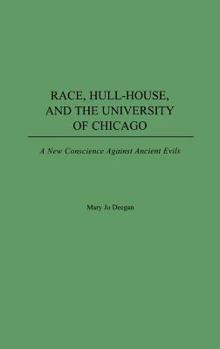Race, Hull-House, and the University of Chicago: A New Conscience Against Ancient Evils
Connecting the views of the Hull-House and early Chicago sociologists to issues of race and gender, Deegan offers a new perspective on race relations in Chicago from 1892 until 1960. She challenges the assumption that race relations activists had to choose either to align with W.E.B. DuBois or Booker T. Washington if they studied American race relations. Questioning the established accounts concerning the so-called Chicago way of thinking and doing...
Format:Hardcover
Language:English
ISBN:0275977765
ISBN13:9780275977764
Release Date:December 2002
Publisher:Praeger
Length:232 Pages
Weight:1.05 lbs.
Dimensions:0.9" x 6.4" x 9.5"
Customer Reviews
0 rating





